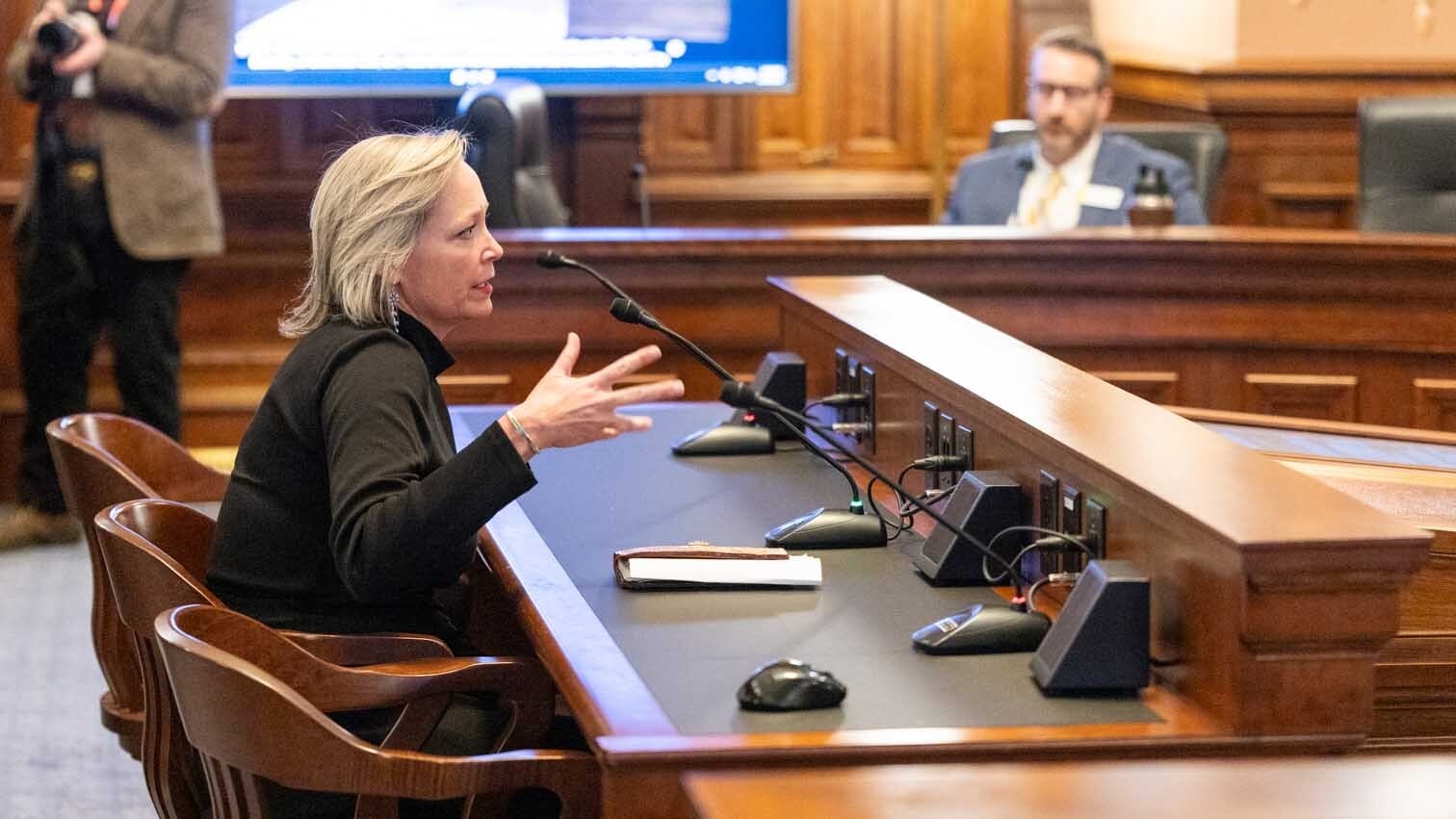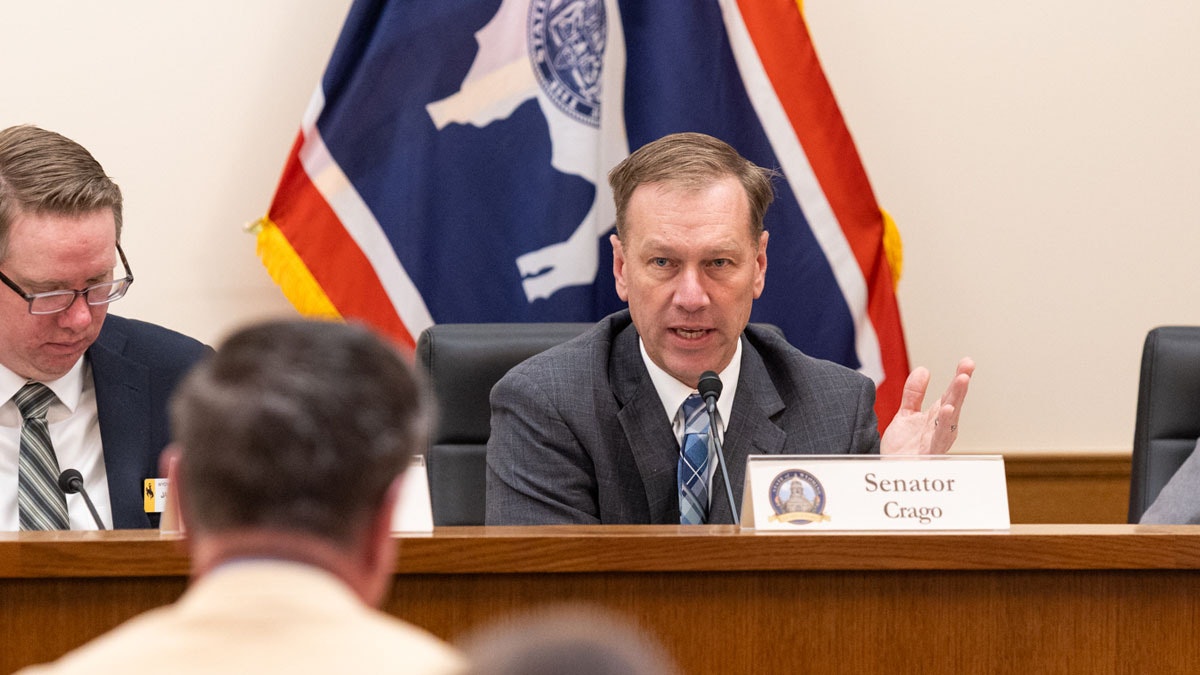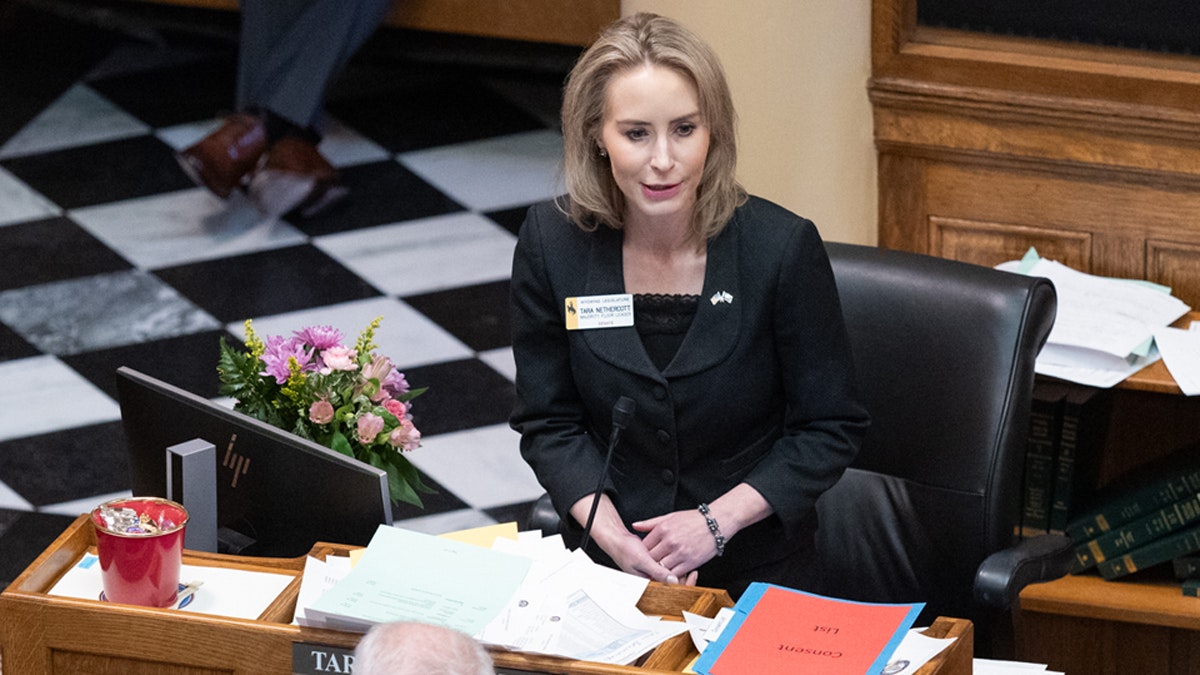Despite pleas from some of Wyoming’s most fiscally conservative legislators, the state’s Joint Revenue Committee rejected a bill that would have implemented an aggressive approach to property tax reform.
Under the legislation, all property would be taxed based on its fair market value as of Jan. 1, 2019, or when it was bought, whichever is later. It would have replaced the traditional assessed valuation model.
The committee failed on a 7-7 vote.
Voting for the measure were Sens. Bob Ide, R-Casper; Tim French, R-Powell; Bo Biteman, R-Ranchester; and Troy Mckeown, R-Gillette; and Reps. John Bear, R-Gillette; Tomi Strock, R-Douglas; and Tony Locke, R-Casper. Votes against were Sens. Stephan Pappas, R-Cheyenne; and Reps. Steve Harshman; R-Casper, Andrew Byron, R-Jackson; Liz Storer, D-Jackson; Ember Oakley, R-Riverton; Dan Zwonitzer, R-Cheyenne; and David Northrup, R-Powell.
Costs
Many of the lawmakers and Wyoming residents who supported the bill told the committee about people being priced out of their homes because of drastically escalating property taxes.
Although the Legislature expanded the state’s property tax rebate program this year to help provide relief for property owners, Bear said he’s looking for full-on reform, not short-term relief.
Converse County Assessor Dixie Huxtable agreed, and called the proposed legislation a change in taxation for Wyoming’s methodology, not property tax relief.
“For some people it may be property tax relief, for some people it may not,” she said.
Don’t Soften The Blow
In Wyoming, property taxes have been one of the top political issues in recent years as they have skyrocketed in some counties.
Although the bill was a far-reaching measure, it also had a few aspects built in that would’ve weakened the blow to Wyoming’s revenue streams from what had originally been proposed within an acquisition-based system. Some who testified in support of the bill criticized these measures.
One was a stipulation that the fair market value of a property will automatically increase 5% each year after a base value is established. This was important as it worked as both a property tax cap and a measure to fairly factor in some inflation.
Storer warned that could lead to massive tax breaks for wealthy people in Teton County who have very valuable homes. She said this could lead to more disparity in her county by drawing even more wealthy people to what is already the most expensive county in the country.
As originally written, the bill also would have meant a $153 million fiscal impact in 2025, which would annually decrease to an $88 million reduction of revenue by 2028. The year-by-year decline in revenue would be caused by the annual 5% value adjustment.
Before the bill was rejected, Locke successfully passed an amendment to the bill reducing it to a no more than 3% market value increase.
Not Perfect
Department of Revenue Director Brenda Henson argued that the aggressive property tax reform bill wasn’t ready. She mentioned to the committee how property tax increases have not been universal or equal statewide and warned that the proposed legislation went far beyond an earlier study on the topic considered because the bill also extended to real and personal property.
“We do need to make sure the legislative intent is clear before we issue such a major change,” she said.
When factoring in mineral taxes, a 2021 Rockefeller Institute analysis found that Wyoming pays the seventh highest property taxes in the nation. But when mineral taxation is removed and only residential taxes are considered, Ashley Harpstreith, executive director of the Wyoming Taxpayers Association, said Wyoming falls to 47th.
Harpstreith said a drastic measure like acquisition value would only increase Wyoming’s economic volatility.
“Without a measured approach of reduction in spending or additional resources to meet the cost of services, anything that limits property tax revenue will result in a future shift of burden from one tax classification, residential, to another — commercial, industrial and mineral,” Harpstrieth said.
Ide said change is hard and isn’t always perfect.
“Change is messy, the status quo isn’t working right now,” Ide said. “The taxpayers are getting taken to the woodshed and the government agencies, schools, towns and counties, it appears they’re looking like they’re getting pretty fat right now.”
In the last six years, the state has collected about $1 billion in increased property tax revenue.
Casper resident Dan Sabrosky criticized the bill as being too watered down and not offering “true relief.”
Although most of the rapid property tax increases happened after the COVID-19 pandemic, Sabrosky said some were there even beforehand, citing an example of an elderly woman who was priced out of her property around 2018.
Although Rep. Bill Allemand, R-Midwest, testified that the bill needed improvements, he also described it as the best legislation he had seen on Wyoming property taxes in “quite a while.” He encouraged the committee to try and make the bill work.
McKeown agreed, and said to offer property tax cuts of any kind, the state must cut its spending and shrink government. During the upcoming budget session, McKeown said he plans to make this his goal.
“You just can’t move jelly beans from one jar to another jar and call it tax relief,” he said.
Other Details
Other details of the proposed bill:
If a property is sold or transferred to a new owner, the property would be taxed upon its fair market value at the time of the sale.
Any improvements to a property would be factored into its market value.
Former Johnson County Assessor Cindy Barlow argued against this, saying there should be no additional taxes levied on improvements made to a home until a property is sold. Ide proposed an amendment that would have done that, but it was defeated 7-7.
“If you do something big … it’s just not right,” Pappas said in arguing against the amendment. “The inequities will grow year after year.”
The legislation would not have applied to agriculture or grazing lands but would have included commercial properties and would’ve treated commercial personal property the same as real property.
A constitutional amendment almost certainly would’ve needed to be passed for the legislation to be enacted. That was also drafted for Monday’s meeting, but was not considered once the initial bill died.
Leo Wolfson can be reached at leo@cowboystatedaily.com.





